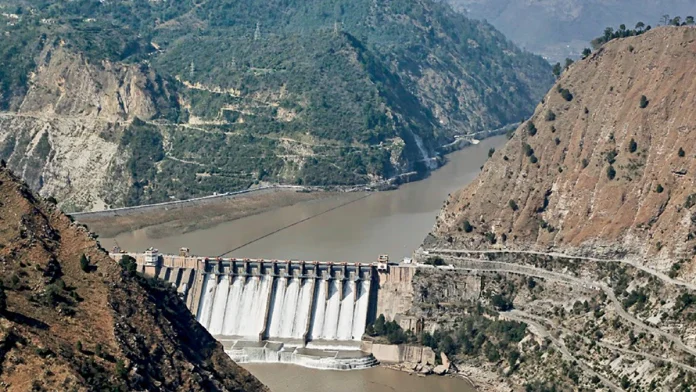Srinagar, India — In a significant development in the ongoing water dispute, India briefly halted the flow of water through the Baglihar dam on the Chenab River, escalating tensions with Pakistan. This action comes in the wake of a terror attack in Pahalgam that claimed the lives of 26 civilians, including tourists, a tragedy that has sparked outrage across India.
The Baglihar project, a run-of-the-river power initiative located in Jammu and Kashmir’s Ramban district, is designed to generate hydroelectric power with minimal water storage. Currently, it produces 900 MW of electricity. India’s decision to temporarily suspend water flow, while compliant with the provisions of the Indus Waters Treaty, serves as a pointed warning to Islamabad, particularly given the contentious atmosphere following the recent terror incident.
Prime Minister Narendra Modi expressed the nation’s grief and anger over the Pahalgam attack, vowing that the culprits would face “a punishment they cannot imagine.” This sentiment echoes the rising calls within political circles for a robust response to what many view as Pakistan’s continued support for cross-border terrorism.
According to Indian officials, the cessation of water flow is a temporary measure, as the Baglihar dam is designed to hold only a limited volume of water. Once this capacity is reached, India is obligated to release water back into the river system. The action may have been prompted by ongoing tensions surrounding the Indus Waters Treaty, which allocates water from the Indus River and its tributaries to both India and Pakistan.
The Chenab River is classified as a “western river” under the treaty, granting Pakistan unrestricted access to its waters. While India can utilize these waters for agricultural and hydroelectric purposes, any perceived disruption is viewed seriously by Pakistan, which has previously threatened that any obstruction of water flow would be seen as an act of war.
Historically, Pakistan has raised concerns regarding India’s hydroelectric projects on these western rivers, arguing that they could provide India with strategic advantages in times of conflict. Both the Baglihar and Kishanganga dams have faced scrutiny from Islamabad, which has taken its objections to the World Bank, a signatory of the treaty. However, decisions have typically favored India, a fact that has not eased tensions.
The situation is precarious, as Pakistani officials continue to warn that any further attempts by India to restrict water flow could have dire consequences for bilateral relations. As the investigation into the Pahalgam attack reveals links to Pakistan-based terror groups, the likelihood of increased conflict over water resources grows.
As India navigates these turbulent waters, both politically and literally, the international community watches closely, aware that any misstep could ignite a far-reaching escalation between the two nuclear-armed neighbors.
This recent action by India may just be the tip of the iceberg in a more complex and fraught relationship characterized by a turbulent history and ongoing territorial disputes. Experts urge caution, emphasizing the need for dialogue to mitigate further conflict over shared resources.
Breaking News, Latest Entertainment News, Gossips, Fashion, Amazon Deals, Lifestyle news, Sports News & Special Stories and keep yourself update. Follow Local Monk News and Blogging website Online.





